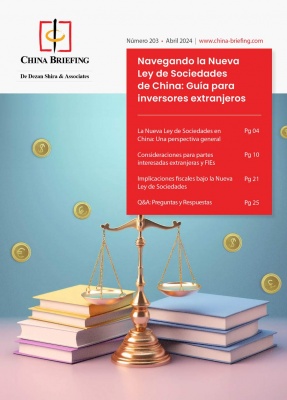China Releases Access Requirements for Wine Industry
Jun. 8 – In accordance with the “Food Safety Law of the People’s Republic of China” and other relevant regulations, the “Wine Industry Access Requirements (hereafter referred as the ‘Requirements’)” have been formulated by the Ministry of Industry and Information Technology and are aimed at making the following improvements to the industry:
- Strengthening management
- Standardizing investment behavior
- Ensuring food safety
- Rationalizing distribution systems
- Promoting orderly development
Enterprises that fail to meet the standards of the Requirements will not be licensed or permitted to operate in the country. The Requirements will come into effect on July 1, 2012.
Business layout
In terms of investments into new, rebuilding and expanding businesses, wine enterprises shall comply with state laws, industry policies, land policies, ecological environmental plans and industry development plans. The energy-saving evaluation and environmental impact assessment shall be strictly implemented by wine production enterprises.
Location-wise, new project sites shall meet the demands of “Winery Hygienic Standards (GB12696)” and grape planting bases shall be built in areas with a suitable environment for food processing.
Measures of scale
There are different measures of scale for newly established wine enterprises. If a newly established wine enterprise or project uses raw materials in production (fresh grapes or grape juice), the annual production capacity shall not be less than 1,000 kiloliters. For import-based wine enterprises, annual production capacity shall not be less than 2,000 kiloliters. The annual production capacity for wineries shall not be less than 75 kiloliters. The government also encourages existing wine enterprises to upgrade and standardize their business through mergers or reorganization.
According to the national standard of “Wine (GB15037),” the Requirements do not apply to several specified wine production enterprises (projects).
Safety guarantee of raw material
In order to ensure safety, wine enterprises shall use certified, traceable and reliable raw materials for production. Also, wine enterprises’ support capability for raw materials shall not be less than 50 percent of production capacity. For import-based wine enterprises, production-based wineries and specified special wine production enterprises, their support capability for raw materials shall not be less than 70 percent of their production capacity.
Dezan Shira & Associates is a specialist foreign direct investment practice, providing corporate establishment, business advisory, tax advisory and compliance, accounting, payroll, due diligence and financial review services to multinationals investing in emerging Asia. Since its establishment in 1992, the firm has grown into one of Asia’s most versatile full-service consultancies with operational offices across China, Hong Kong, India, Singapore and Vietnam as well as liaison offices in Italy and the United States.
For further details or to contact the firm, please email china@dezshira.com, visit www.dezshira.com, or download the company brochure.
You can also stay up to date with the latest business and investment trends across emerging Asia by subscribing to the Asia Briefing weekly newsletter.
Related Reading
China’s Exploding Wine Consumption
China’s Wine Market Shows Great Potential
China Approves First Private Wine Equity Fund
Getting Money Out of China: Macau Casinos, Xinjiang Jade and French Wines?
Consumption Trends and Targeting China’s Female Consumers
Report: China’s 2020 Consumer Demographics
- Previous Article RMB Depreciates Against U.S. Dollar By Record Amount in May
- Next Article China – The Competing Asia Round Up



























